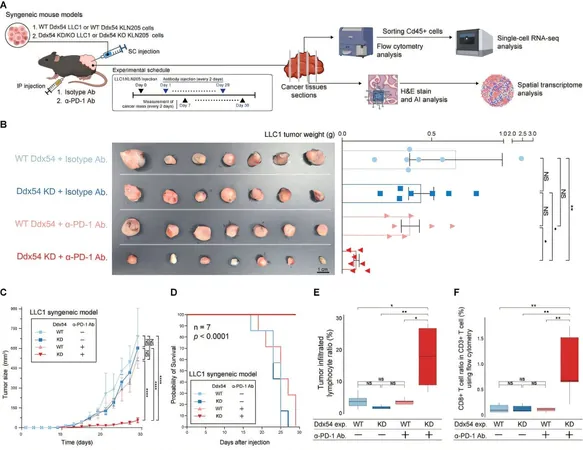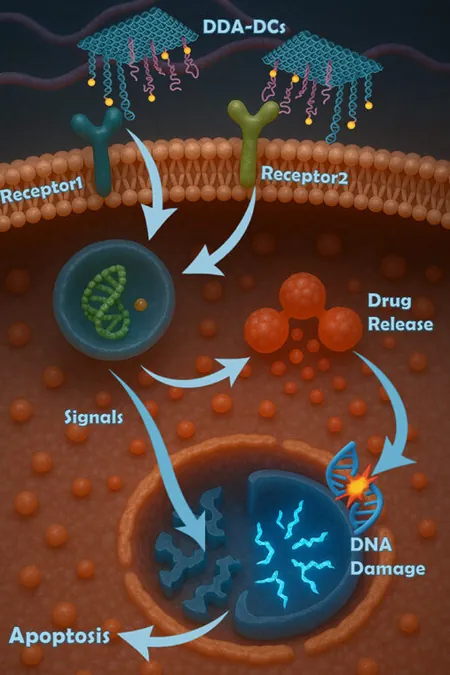
How Age at Dementia Diagnosis Impacts Life Expectancy: A Groundbreaking Study Revealed!
2025-01-09
Author: John Tan
Introduction
A staggering 10 million individuals are diagnosed with dementia globally each year, but the life expectancy following such a diagnosis varies dramatically based on age. A recent study has shed light on this critical issue, revealing that the age at which someone receives a dementia diagnosis plays a pivotal role in determining their remaining life span.
Key Findings of the Study
The research indicates that individuals diagnosed with dementia at age 85 experience a reduction in life expectancy of about two years. Meanwhile, those diagnosed at age 80 face a decline of 3 to 4 years. Strikingly, younger patients diagnosed at age 65 can expect to lose up to 13 years of life.
Variations in Life Expectancy by Age and Gender
According to a systematic review published in The BMJ (British Medical Journal), the average life expectancy for people diagnosed with dementia varies significantly. For women, it ranges from an average of 9 years at age 60 to just 4.5 years by age 85. For men, the numbers are even more sobering, with average life expectancy dropping from 6.5 years at age 60 to slightly over 2 years at age 85.
Demographic Nuances
Interestingly, the study revealed demographic nuances, such as Asian populations having a survival advantage of up to 1.4 years longer than their Western counterparts, and those diagnosed with Alzheimer's disease living longer than individuals with other forms of dementia.
Research Methodology
Researchers, primarily from the Netherlands, thoroughly analyzed data from 261 studies conducted between 1984 and 2024, encompassing more than 5 million dementia patients, of whom 63% were women. Their findings indicated that the average time to nursing home admission was slightly over 3 years, with 13% being admitted in the first year post-diagnosis. This figure escalated to 35% within three years and over 57% by the fifth year.
Caveats and Future Research
However, the findings come with a caveat: they are observational and highlight the need for individualized studies that consider factors like personal health, social circumstances, disease progression, and additional health conditions. The researchers emphasized that a nuanced approach is crucial for future prognostic studies.
Conclusion
In summary, the implications of this study underscore the urgency for healthcare systems to optimize services tailored to the needs and situations of patients and their families, thereby improving the quality of life for those living with dementia.
Call to Action
As we advance, the call to action is clear: to refine our understanding of dementia prognosis and enhance care practices, we must innovate and adapt to the complexities of these patients' lives.
Stay Informed
Want to know more about dementia and its risk factors? Stay tuned for the latest updates on healthcare breakthroughs affecting millions worldwide!






 Brasil (PT)
Brasil (PT)
 Canada (EN)
Canada (EN)
 Chile (ES)
Chile (ES)
 Česko (CS)
Česko (CS)
 대한민국 (KO)
대한민국 (KO)
 España (ES)
España (ES)
 France (FR)
France (FR)
 Hong Kong (EN)
Hong Kong (EN)
 Italia (IT)
Italia (IT)
 日本 (JA)
日本 (JA)
 Magyarország (HU)
Magyarország (HU)
 Norge (NO)
Norge (NO)
 Polska (PL)
Polska (PL)
 Schweiz (DE)
Schweiz (DE)
 Singapore (EN)
Singapore (EN)
 Sverige (SV)
Sverige (SV)
 Suomi (FI)
Suomi (FI)
 Türkiye (TR)
Türkiye (TR)
 الإمارات العربية المتحدة (AR)
الإمارات العربية المتحدة (AR)